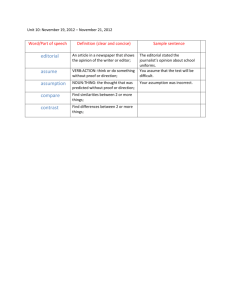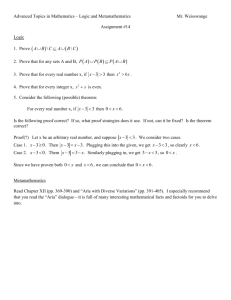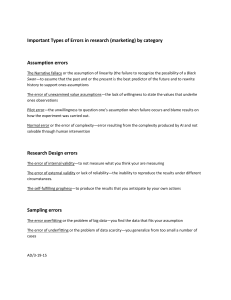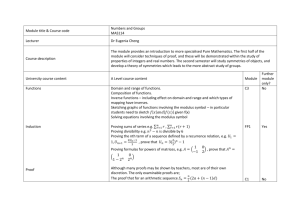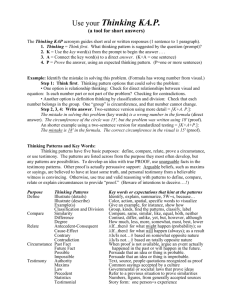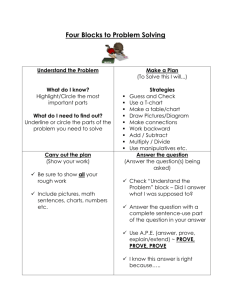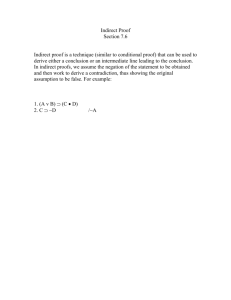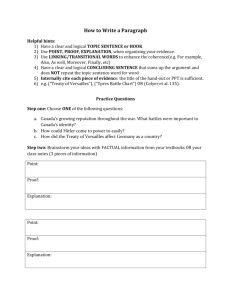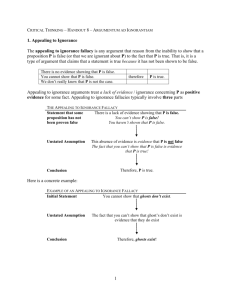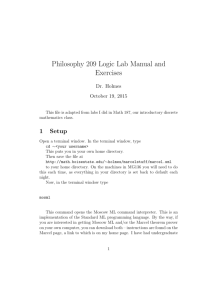Assumptions in “Climate Action”
advertisement
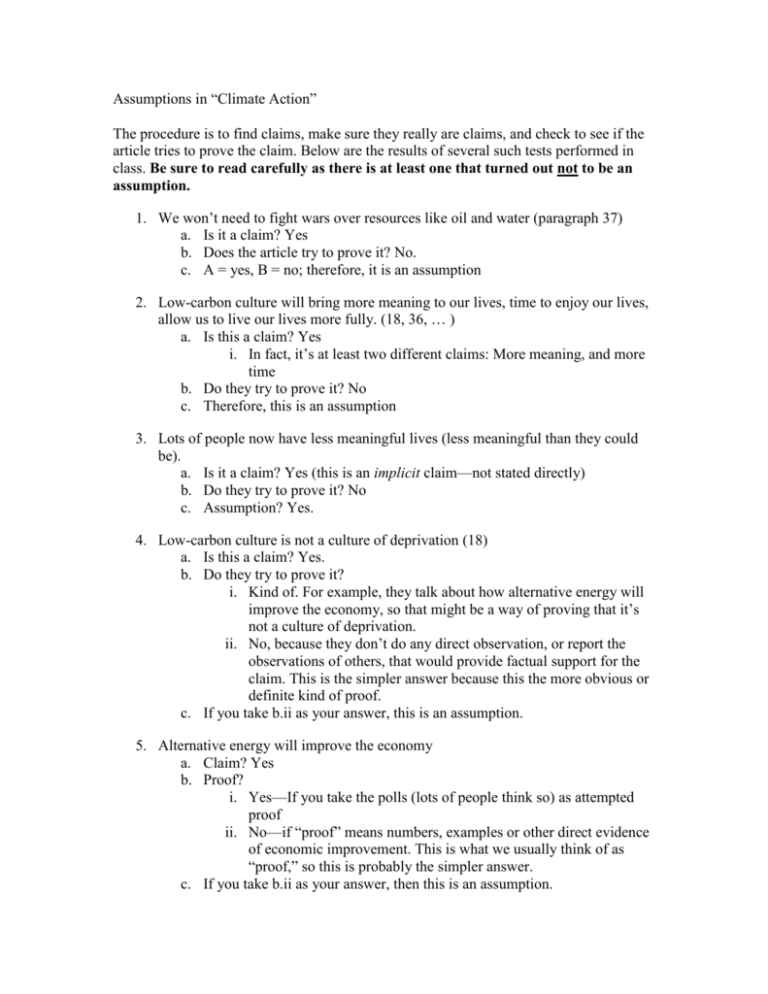
Assumptions in “Climate Action” The procedure is to find claims, make sure they really are claims, and check to see if the article tries to prove the claim. Below are the results of several such tests performed in class. Be sure to read carefully as there is at least one that turned out not to be an assumption. 1. We won’t need to fight wars over resources like oil and water (paragraph 37) a. Is it a claim? Yes b. Does the article try to prove it? No. c. A = yes, B = no; therefore, it is an assumption 2. Low-carbon culture will bring more meaning to our lives, time to enjoy our lives, allow us to live our lives more fully. (18, 36, … ) a. Is this a claim? Yes i. In fact, it’s at least two different claims: More meaning, and more time b. Do they try to prove it? No c. Therefore, this is an assumption 3. Lots of people now have less meaningful lives (less meaningful than they could be). a. Is it a claim? Yes (this is an implicit claim—not stated directly) b. Do they try to prove it? No c. Assumption? Yes. 4. Low-carbon culture is not a culture of deprivation (18) a. Is this a claim? Yes. b. Do they try to prove it? i. Kind of. For example, they talk about how alternative energy will improve the economy, so that might be a way of proving that it’s not a culture of deprivation. ii. No, because they don’t do any direct observation, or report the observations of others, that would provide factual support for the claim. This is the simpler answer because this the more obvious or definite kind of proof. c. If you take b.ii as your answer, this is an assumption. 5. Alternative energy will improve the economy a. Claim? Yes b. Proof? i. Yes—If you take the polls (lots of people think so) as attempted proof ii. No—if “proof” means numbers, examples or other direct evidence of economic improvement. This is what we usually think of as “proof,” so this is probably the simpler answer. c. If you take b.ii as your answer, then this is an assumption. 6. If other people think something it must be true. Or, the majority is right (paragraph 27, where they cite the poll that 77% of Americans think green energy will improve the economy, as a way of proving that it will improve the economy). This is sometimes referred to as the fallacy Argumentum ad populum, or “appeal to the people” (for more on this fallacy, see http://www.iep.utm.edu/fallacy/#Appeal%20to%20the%20People). a. Claim? Yes b. Proof? No c. It is an assumption 7. There is broad consensus in the scientific community that global warming is happening and that humans have caused it. a. Claim? Yes b. Proof? No c. It is an assumption 8. Global warming is happening and humans have caused it. (Notice that this claim is embedded in the previous one about the broad scientific consensus.) a. Claim? Yes (2 claims, actually: 1) it’s happening; 2) humans have caused it) b. Proof? i. Yes on 1st claim (global warming is happening—first few paragraphs) but no on the second (humans have caused it) ii. Yes on both counts (livestock responsible for 50% is an attempt to prove the second) iii. Yes on both claims because they mention “broad consensus” in the “scientific community.” c. I think that b.ii and b.iii are the best answers here. If so, this would not be an assumption because they do try to prove it. After you’ve found several assumptions, ask if each one is important for the thesis, kind of important, or not very important. Pick 2 – 3 important ones to focus on in your paper. These will be the ones you will evaluate, deciding if they are good or true or valid or reasonable (all these terms mean more or less the same thing for our purposes).
